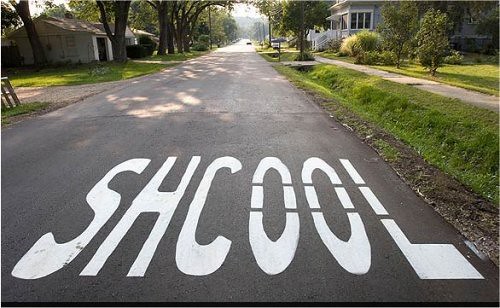One of the hardest parts of teaching writing is giving feedback. It can take days to accomplish this feat. By the time the stories my sixth graders write are completed and ready to be reviewed, I've already read them several times in order to give encouragement or advice along the way, but I still struggle with feedback. When they compose, my kids have to sit and think, pull ideas from their own minds, commit to them, stand behind them, none of which are easy tasks, even for an old woman like myself. Consequently, when I judge my kids' writing, I know that I'm judging my kids. I want to be honest with them about what works and what doesn't, but I want to be gently honest. I want to be the sort of honest that prods them to improve, not the sort of honest that prompts them to give up on writing altogether.
Because even if the writing is terrible (and sometimes it's beyond terrible and well into the realm of painful to read), it meant something to my kids. Even if the kid in question protested throughout the process, declaring that he wasn't even really trying, it meant something. And even if the kid defiantly ignores my counsel in favor of what he thinks is the best way to tell the story, I want to support that because I want my kids to have their own ideas, even if I think they're godawful ideas.
No writing is impersonal. Even when I taught high school and my kids were writing research papers that they absolutely didn't care a thing about, it was personal. Unlike a math test, where the answer is objectively right or wrong, unlike standardized tests where there's only one "best answer" of four, writing is the articulation of the individual's mind, writing is the expression of the infinite possibilities of seven billion brains with one hundred billion neurons a piece firing off more choices, more best answers, than we can conceivably imagine or capture on any sort of test.
Writing is the artifact of thought. Even thought about something that's not important to me is my thought, a product of my mind, something that can't be blamed on anyone else or credited to anyone else. For that reason, all writing is personal. All writing comes from the individual, is a reflection of the individual. It's not the choice of someone else's best answer; it's the assertion of my own best answer.
And so when I respond to my students, I want to say more than good or bad. I want to make a note of what moved me about the writing (and sometimes I have to really search for it), and I want to offer counsel regarding those places where more work could be done, where the student can make it even better (even if by even better I really mean: well enough that I don't feel like my brain is crawling out of my skull in protest, which is really what I mean at times).
Because I don't want them to hate writing. I don't want them to quit writing. Writing is important. Even if it's not writing anymore. Even if it's emailing or tweeting or posting or some other derivative of the original act of composition, it's still the outward sign of an inward process that is extraordinarily vital not only to the individual but to the society that is dependent upon the individual's ability to create his own ideas.
This is my fear as a teacher. My fear is that education will continue to revolve around the notion that there is only one right answer and that right answer comes from someone else. My fear is that we will move farther and farther from giving students the opportunity to develop their own ideas, to construct their own knowledge, and closer and closer to a group mind that can only function when told how to function by the nearest authority figure.
Making learning personal is something that should be encouraged in schools, in every class, from the earliest grades forward. Making it about forging one's own personal ideas about the world and delivering those ideas to the world's doorstep - be it in the form of a blog, a painting, a brief but powerful tweet, or even in graffiti - is the only way to ensure that we never dwindle down to four choices, only one of which is right.









